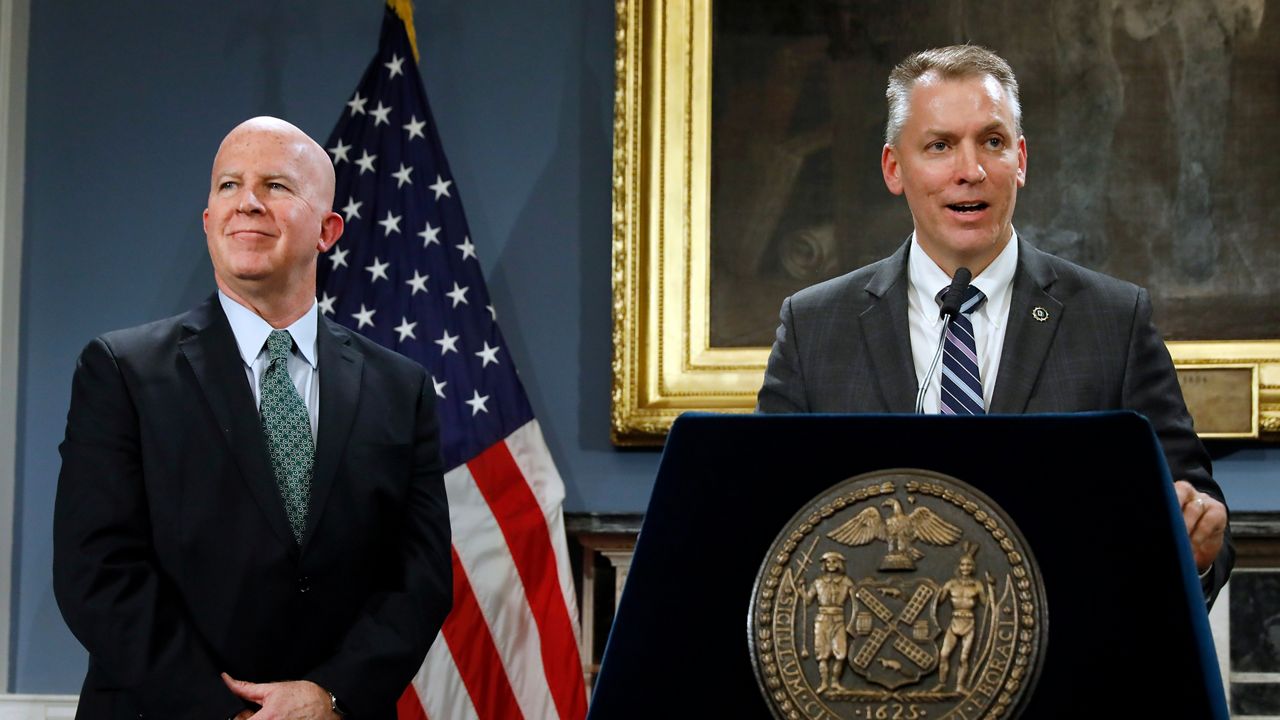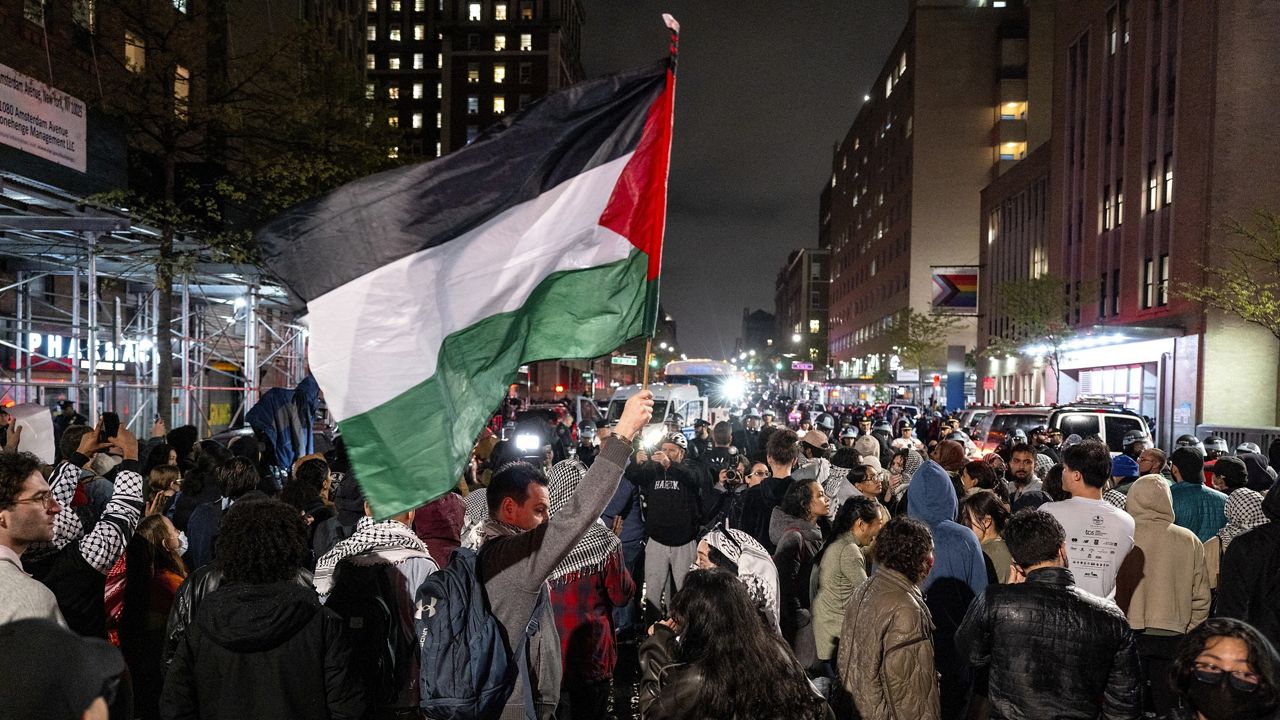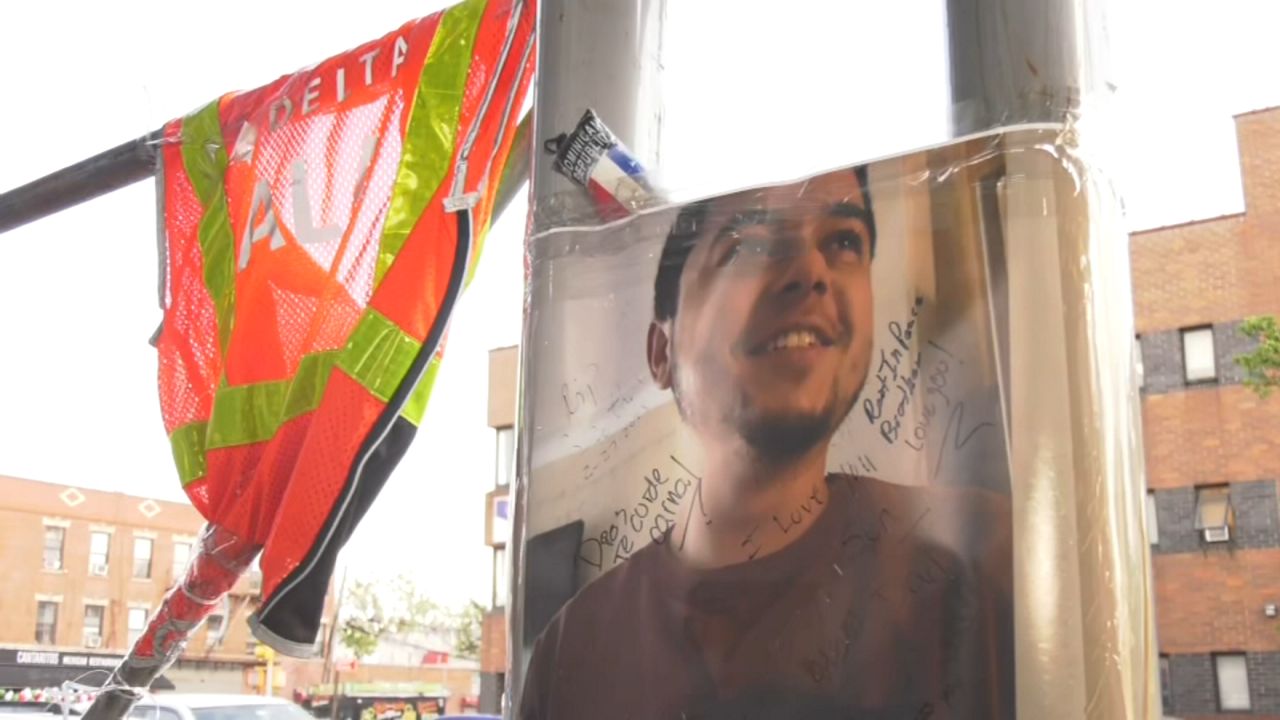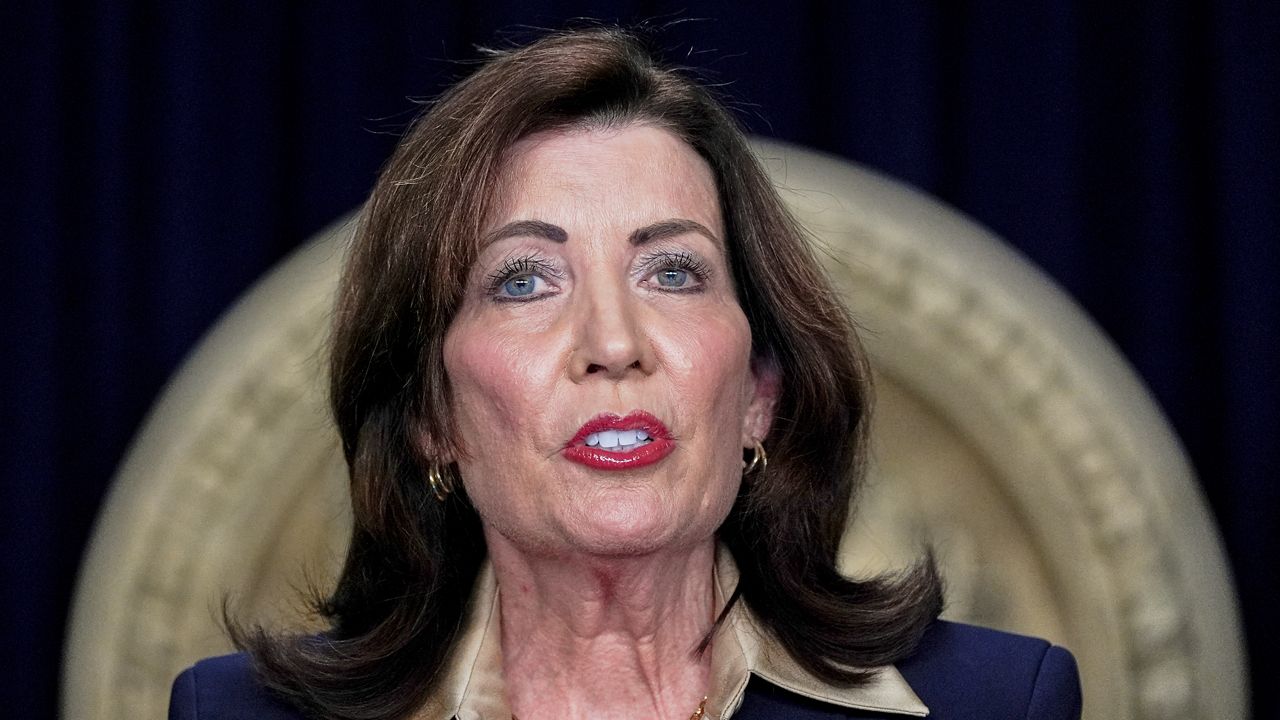Police Commissioner James O'Neill announced Monday afternoon that he would step down, and Mayor Bill de Blasio said he will be replaced by Chief of Detectives Dermot Shea.
O'Neill said he will take a job in the private sector. His departure was rumored for months. He said the time was right now.
"I'm leaving because I have another opportunity," he said at the announcement. "It's something I couldn't pass up."
"Jimmy's legacy will play out in the lives that were changed, the people alive today who wouldn't have been, the families intact, the folks who know safety, who know what mutual respect between police and community means," de Blasio said.
"On behalf of all New Yorkers, I want to express deep gratitude to Jimmy O'Neill for dedicating his entire career to keeping our city safe," de Blasio's statement reads, in part. "Jimmy transformed the relationship between New Yorkers and police, and helped to make the Department the most sophisticated and advanced in the country."
- PBA Boss: Mayor, Police Commissioner Should Lose Jobs Over Pantaleo Firing
- NYPD Commissioner Fires Officer in Eric Garner Case, PBA Filing Appeal
NOT GOING FAR FOR THE NEW TOP COP
Shea will be the third police commissioner of de Blasio's tenure.
"Dermot Shea is a proven change agent, using precision policing to fight crime and build trust between police and communities. As Chief of Crime Control Strategies and then Chief of Detectives, Dermot was one of the chief architects of the approach that has made New York City the safest big city in America. Dermot is uniquely qualified to serve as our next Police Commissioner and drive down crime rates even further," the mayor's statement reads, in part.
Shea, born in Queens, has been an officer for nearly 30 years and a part of O'Neill's inner circle.
"We've further pushed crime down, we've reduced incarceration, we've attained levels whether you measure by any standard or metric — homicides, lives saved, shooting incidents, assault victims, robberies, all at historical-lows," Shea said as he was introduced as the incoming police commissioner.
"Dermot…is one of the best-prepared incoming police commissioners that this city has ever seen," the mayor said. "Folks who have worked with Dermot Shea will tell you he's the real deal."
A LOOK AT O'NEILL'S TENURE
O'Neill was sworn in on September 19, 2016, following the retirement of Bill Bratton.
He began his career in law enforcement in 1983 with the transit police and rose through the ranks to eventually be named chief of department, the NYPD's highest uniformed rank, in December 2014.
Under his leadership, crime has remained at record-lows, though there have been some spikes in violent crime this year. The city has also seen a rise in hate crimes, including a 50 percent increase in anti-Semitic hate crimes in September.
The department has also seen a disturbing spike in suicides of members of the NYPD.
The most polarizing moment of O'Neill's tenure was the firing of Officer Daniel Pantaleo this past August. Pantaleo was the police officer who put Eric Garner in a chokehold in July 2014. Video shows Garner shouting, "I can't breathe," and falling to the ground. He later died.
Pantaleo was not criminally charged, but O'Neill chose to fire him, saying in an emotional address that it was clear Pantaleo had broken department rules and could "no longer effectively serve as a New York City police officer."
Garner's family and other advocates had pushed for Pantaleo to be fired for years. But the decision was met with anger by police unions, and the NYPD said there was a 27 percent drop in arrests in the week after Pantaleo's firing.
Pantaleo is currently suing to get his job back.
In a statement, Patrick Lynch, the president of the Police Benevolent Association (PBA) union for uniformed officers, said the PBA was looking forward to working with Shea "to combat the current anti-police atmosphere and make positive changes that will improve the lives of our police officers and every New Yorker we protect."
Police unions have criticized O'Neill for what they considered a lack of support in several controversial cases, including his firing of Pantaleo.
The head of the sergeants' union called O'Neill the mayor's "puppet" and the worst commissioner in city history.
O'Neill admitted he didn't realize how much pressure he would be under from all sides. He said officers' deaths were the hardest part of being the commissioner.
"When I came into this job, I really didn't understand just how much time you spend with line-of-duty families," the commissioner said. "You get to see what an impact their loved one's death has on them."
There were some high-profile incidents of terrorism during O'Neill's tenure. On his first day on the job, a bomb exploded in Chelsea, injuring 30 people. The suspect, Ahmad Rahimi, was later taken into custody in New Jersey. He was found guilty on all charges against him in 2017 and is serving multiple life sentences behind bars.
On Halloween in 2017, a man killed eight people and injured 12 others when he drove a truck on a bike path near the West Side Highway. Sayfullo Saipov, 29, was charged with murder and attempted murder, as well as providing material support to the Islamic State group. He will be tried in March 2020.
Four police officers were shot and killed in the line of duty since he started the job. But crime continued to fall, to fewer than 300 murders in 2017, and again last year. And O'Neill spread the implementation of neighborhood policing.
O'Neill still has a few weeks left as the city's top cop. He said his last day as police commissioner will be at the end of the month.







_Pkg_Car_Stolen_with_Child_Inside_Clean_FOR_APPROVAL_134114017_565)
